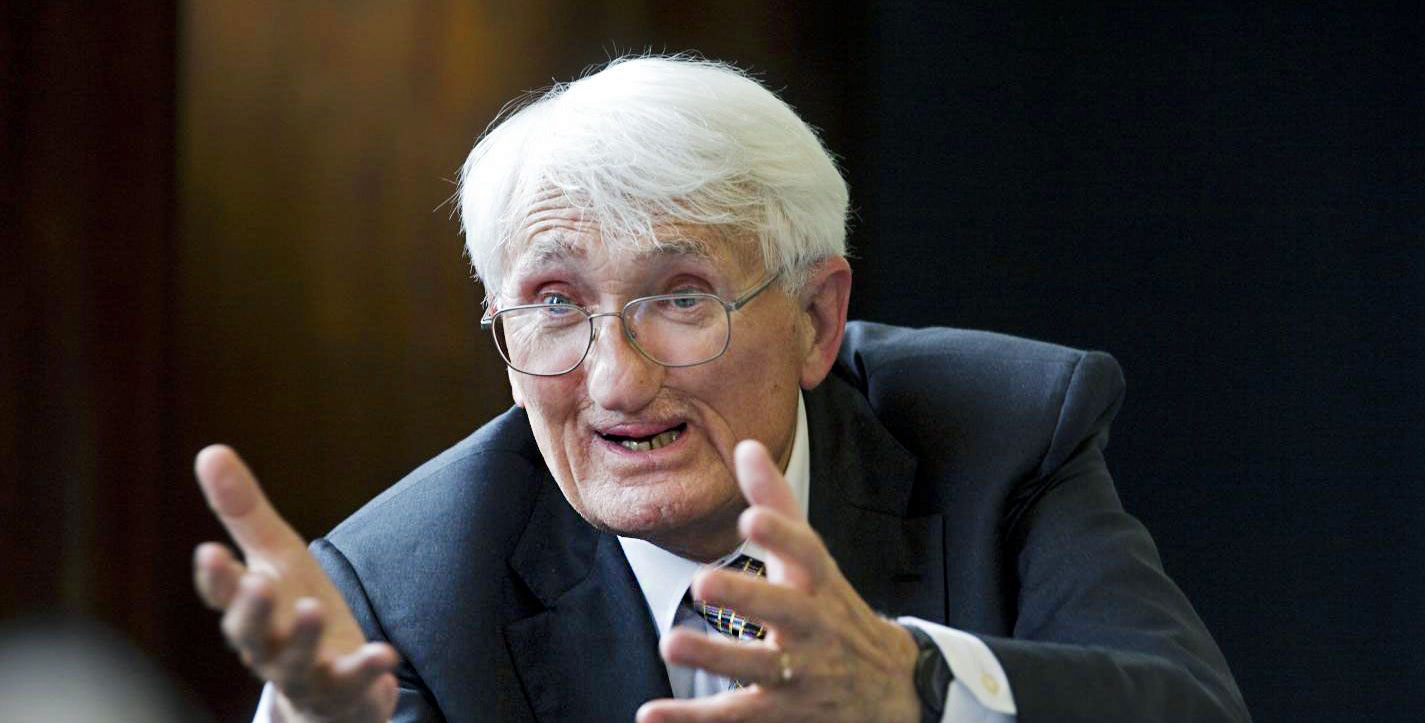Can a country truly change overnight? Having cultivated a national culture that is inherently suspicious of intervening in foreign conflicts after 1945, the war in Ukraine seemed to have caused a fundamental shift in the way Berlin sees its position in the international order. Within days of the Russian invasion chancellor Scholz declared to ramp up defence spending above 2% of GDP and dedicating an additional 100bn euros to the German armed forces.
But in recent weeks, some of Germany’s leading intellectuals are coming out of the woodwork to voice their unease about their country’s involvement in Ukraine.
In early May, a group of German academics published an open letter asking the German government to reconsider supplying Ukraine with heavy weapons, which gathered over 285,000 signatures (by contrast, a rival letter demanding unconditional support for Ukraine attracted a just 71,000 signatures). And thanks to support from Martin Walser and Jürgen Habermas, the anti-war faction has two of Germany’s most important intellectuals on their side. The latter has been particularly unsparing in his critique of those who demand more support for Ukraine. They are shrill and engage in moral blackmailing, Habermas argues, sabotaging the cautious course of chancellor Scholz.
From the late Günther Grass — winner of the Nobel Prize for Literature in 1999 — to Walser and Habermas there has long been a consensus that the West always needs to show restraint in its foreign policy. Since 1945 German identity and foreign policy rested on the principle to avoid the direct involvement in armed conflicts and interfere primarily through financial support, as happened during the Persian Gulf War in 1991, when Berlin was not sending troops but a cheque. There have been few exceptions to this, like the Balkan Wars in the 1990s or after the terrorist attacks on September 11th, 2001, but both of these cases led to heated domestic debates.
It is important to understand that this line of thinking is not just a matter of policy, but of a political culture that sees in every potential military involvement the reflection of its own belligerent past and any kind of peace as a preferable option. Not seeing a defeat of Russia as a realistic possibility, for many German intellectuals the current level of support for Ukraine is foolhardy.
Attitudes towards President Zelenskyy are changing as well. An Austrian magazine recently published a cover story that was widely shared in Germany claiming that Zelenskyy is a “lying and deceiving to fill an inner emptiness driven by the psychological trauma of having Jewish ancestors” while Putin “feels misunderstood.” In its current print edition, the German newspaper “Süddeutsche Zeitung” published a cartoon that depicts an oversized Zelenskyy looming over the World Economic Forum in Davos, playing with antisemitic stereotypes. These stories reflect a broader sentiment in the country: a majority of Germans have made clear, for example, that they would not support an energy embargo against Russia.
As the war drags on, more Germans seem to be longing for a return to the post 1945 consensus and to disengage from the conflict as much as possible. And it is the countries foremost intellectuals who are spearheading this shift.











Join the discussion
Join like minded readers that support our journalism by becoming a paid subscriber
To join the discussion in the comments, become a paid subscriber.
Join like minded readers that support our journalism, read unlimited articles and enjoy other subscriber-only benefits.
Subscribe